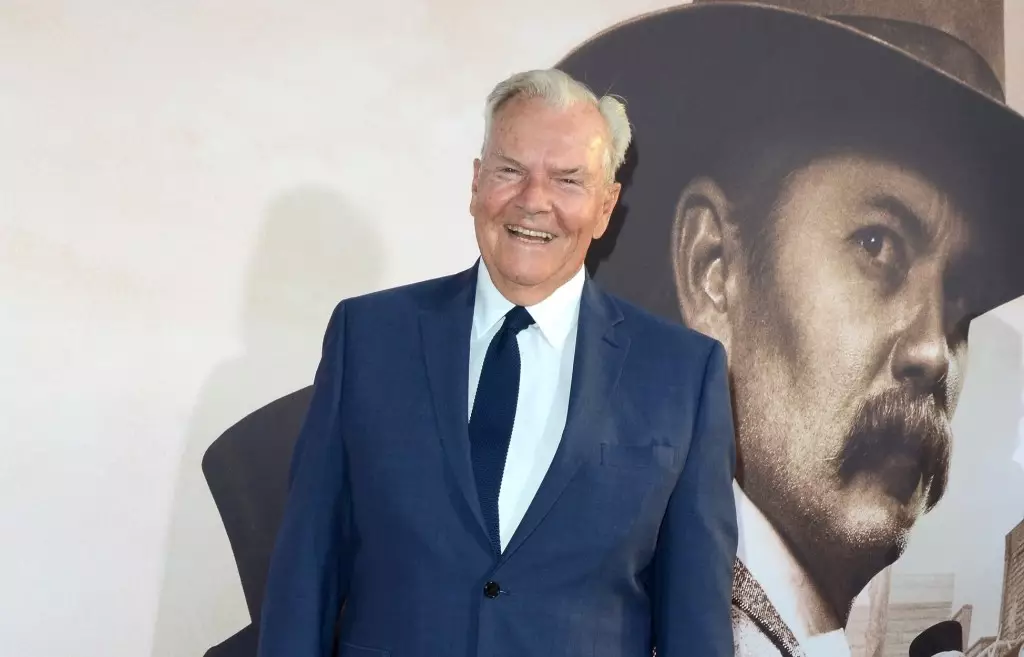Peter Jason, a name synonymous with notable character portrayals in film and television, left an indelible mark on the entertainment industry before passing away at the age of 80. Known for his memorable role as Con Stapleton, the simple yet lovable card dealer in HBO’s acclaimed series “Deadwood,” Jason’s contributions to cinema resonate far beyond a single performance. His death has prompted reflections from friends and colleagues, clearly illustrating his impact both on and off the screen.
Born on July 22, 1944, in Hollywood, California, Peter Jason’s journey into the world of acting was somewhat improbable yet quintessentially American. Growing up in Newport Beach, he cultivated a passion for drama that would eventually lead him to Carnegie Mellon University, a prestigious institution known for its rigorous arts curriculum. Here, he refined his craft, developing the skills that would later allow him to portray a vast array of characters throughout his lengthy career—a career that would span over five decades and include more than 260 credits in film and television.
Jason’s diverse body of work includes memorable guest appearances on classic TV series from the 1960s and beyond, highlighting his adaptability as an actor. His talent allowed him to transition from guest spots in shows like “Judd for the Defense” and “Here Come the Brides” to significant roles in enduring series such as “The Golden Girls” and “NCIS.” Each role, no matter how small, added to the rich tapestry of his career, enabling him to leave a lasting impression on audiences.
Among the pantheon of directors with whom Peter Jason collaborated, John Carpenter and Walter Hill stand out prominently. Carpenter, well-known for his contributions to the horror and thriller genres, utilized Jason’s unique abilities in an impressive seven films from 1987 to 2001. Each partnership bore fruit, delivering performances that showcased Jason’s versatility—a skill most notably demonstrated in films like “They Live” and “Escape from L.A.” With Hill, Jason became an unwavering presence, excelling in roles such as the unforgettable racist bartender in the 1982 film “48 Hrs.,” showcasing his ability to challenge and diversify character portrayals.
His episodic return to “Deadwood,” which originally aired between 2004 and 2006 and later continued with a cinematic conclusion in 2019, is a testament to his enduring appeal and the affection audiences garnered for his character. Playing a card dealer in a setting rife with harsh but compelling dynamics, Jason’s performance was both poignant and humorous, earning him critical praise.
In light of his passing, heartfelt tributes from industry friends have flooded social media, emphasizing not just his talent but the warmth he exuded as a person. John Carpenter expressed his sorrow, calling Jason, “one of the great character actors in cinema” and lamenting the loss of a dear friend. Similarly, actor Billy Zane commemorated him as “the brightest light, most generous soul,” reflecting a rich personal connection that extended beyond their work. Matthew Asner, son of the late Ed Asner, poignantly captured the sense of loss among Jason’s circle, reminiscing about their friendship and acknowledging the profound impact Jason had on those fortunate enough to know him.
These tributes highlight a commonplace theme in the acting community: the importance of camaraderie. Jason’s jovial spirit and generous nature made him not just a cherished colleague but also a loving friend, leaving a void in the personal lives of those left behind.
A Lasting Impact
Peter Jason’s death marks the end of an era for a particular brand of character acting, one that eschews the limelight for a consistent dedication to storytelling. His legacy as a character actor will endure, as will the memories he created both in front of the camera and in the hearts of his friends, family, and fans. As we remember him, it’s essential to celebrate the contributions of actors like Jason—who, through sheer talent and passion, have enriched the cinematic landscape in ways that transcend their individual roles. His work will continue to inspire future generations of performers who dare to portray the multifaceted nature of humanity through the craft of acting.



Leave a Reply